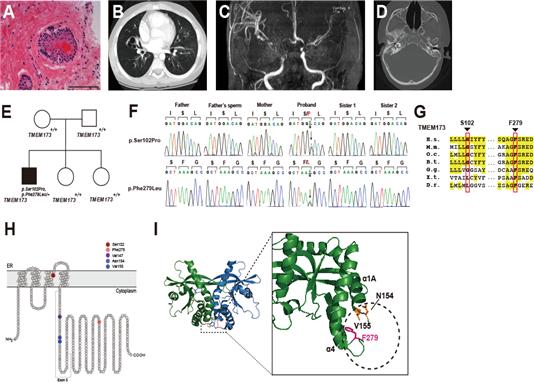Mutant gene causes genetic inflammatory disease
A local research team has discovered a customized drug therapy to determine the causes of unidentified highly-inflammatory diseases and improve their symptoms, Korea Health Industry Development Institute said Wednesday.
The team began its research to know the exact reasons for the symptoms of patients who have suffered from skin troubles, pulmonary diseases and cerebrovascular ailments of unknown causes since early childhood. Until then, experts had not known about their diseases and limited their treatment to easing such symptoms, the institute said.
In the case of rare inflammatory diseases, the experts had found out their causes by tracing some patients’ genetic problems associated with previously reported mutant genes but failed to do for other patients. Some patients had parents with a healthy immune system, and in others, both their fathers and mothers had no family history of genetic diseases inflicting the patients.

The results of the study were published in January in the online edition of the Journal of Allergy and Clinical Immunology, a scholarly journal in medical science.
The researchers, to find out causes of unidentified inflammatory diseases inflicting patients with no such family history, analyzed the total nucleic acid sequence of the patients and their parents.
As a result, the team confirmed that the cause of the unknown inflammatory disease was the nucleotide substitution codenamed the “TMEM173,” which produces the protein called STING. This mutant gene has the nature that induces excessive immune responses even when there are no or weak pathogenic infections.
Through the continuous analysis of this mutant gene’s functions, they could find out a custom-made remedial agent named Tofacitinib, confirming it eased symptoms of patients treated with the new drug, the institute said.
"We have established a basis for developing a therapeutic strategy for unexplained immune diseases, presenting a model of how we can make the most of the precision medicine in the clinical fields of rare diseases,” said one of the researchers, Professor Choi Moo-rim of Seoul National University. “It is significant that we are moving closer to realizing precision medicine resulting from the research of genes in the area of rare diseases.”

